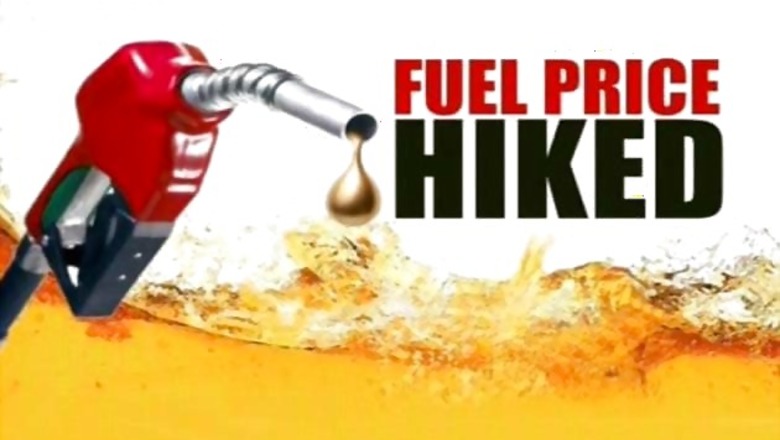
views
Mumbai: The UPA government came under intense pressure on Thursday from within the ruling coalition and protesters to roll back the steepest petrol price hike in the country's history, less than 24 hours after it took the unpopular decision cheered by investors.
There had been signs that the beleaguered government was preparing to take the bolder step of cutting subsidies on other fuels weighing on its budget deficit, but after a day of uproar over petrol prices, an imminent move looked unlikely.
State oil companies announced on Wednesday they would raise the price of petrol by about 11 percent, the first increase in six months, as they sought to recover growing losses from higher global oil prices and a plunging rupee that again hit a historic low to the dollar during the day.
The BSE Sensex rose 1.72 percent on hopes the petrol price rise would be followed by similar increases in other fuels, such as diesel. The rupee also recovered to 55.76 from a low of 56.40 against the dollar.
But protesters in Andhra Pradesh, Bihar, Odisha, Jammu and Kerala burnt effigies of Prime Minister Manmohan Singh, set motorcycles on fire and held placards reading "Bring down petrol prices".
In some areas, likenesses of Sonia Gandhi, the leader of the Congress party that heads the ruling coalition, were also set ablaze.
Petrol is not subsidised by the government, but state refiners, which dominate the market, had kept prices on hold despite an increase in crude prices. Diesel, kerosene and liquid petroleum gas, fuels used by the poor and in public transport, are heavily subsidised and make up a hefty portion of the ballooning fiscal deficit.
Economists cheered the petrol increase, saying it showed the embattled coalition, paralysed for months by infighting and indecision, was finally taking action to rein in ballooning trade and fiscal deficits.
Adding to the sense of new momentum, a Finance Ministry official said a group of government ministers led by Finance Minister Pranab Mukherjee would meet on Friday to discuss the possibility of raising the price of diesel.
India has not raised diesel prices since July 2011.
But by the afternoon, as news of the protests spread, the Finance Ministry official was casting doubt on Friday's diesel price meeting, saying the political backlash was forcing a rethink.
"The increase in diesel price may aggravate the situation," the official said, speaking on condition of anonymity because of the sensitivity of the issue. A second official confirmed the meeting might not take place as scheduled.
Petroleum Minister Jaipal Reddy cut short a visit to Turkmenistan, where he signed a gas pipeline deal with Pakistan on Wednesday, and was due to return home on Thursday evening, officials said. It was not immediately clear why he was returning to New Delhi early.
Raising fuel prices is crucial if India is to reach its goal of cutting its subsidy burden below 2 percent of gross domestic product from about 2.4 percent in the fiscal year that ended in March. While a fuel price rise would add to inflation, it would also hearten investors disillusioned by the government's inability to push through reforms.
In addition to the street protests, opposition politicians as well as some allies of the Congress called for a rollback in the petrol price increase.
Television channels reported that some Congress party leaders were also not in favour of the increase and that a partial nationwide rollback of between 2-5 rupees was possible. The price increase announced on Wednesday was 6.28 rupees a litre, excluding taxes.
A rollback would be humiliating for a government that has announced, then withdrawn, a string of policies from price rises to allowing foreign supermarkets like Wal-Mart to operate in India. The flip-flops have undermined investor confidence.
State-owned Indian Oil Corp, the country's largest oil refining and marketing firm, insisted it was not under pressure to reverse the petrol hike, its chairman, RS Butola, told reporters. He said it would review prices again in June.
Shops and businesses were closed across the southern state of Kerala on Thursday in a strike organised by left-wing parties to protest against the price increase.
In Odisha, political parties organised protests and some demonstrators roamed the streets on motorbikes. Government workers joined rallies and protesters forced some petrol pumps to close.
The Biju Janata Dal, warned it would begin state-wide protests if there was not an immediate rollback of the price increase.
At a Congress party news conference called to address the backlash, a spokesman said he hoped state governments, the central government and oil marketing companies could find "some kind of modus operandi" to mitigate the impact of the increase.
















Comments
0 comment